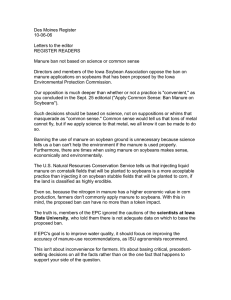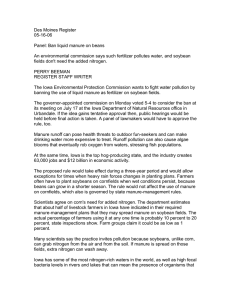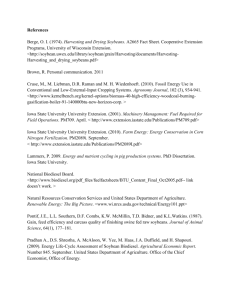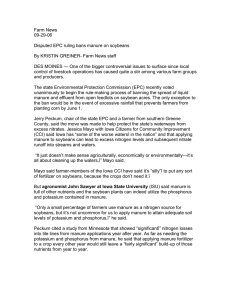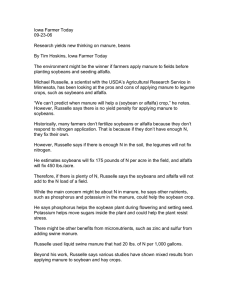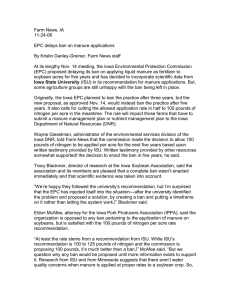Des Moines Register 09-25-06 Apply common sense: Ban manure on soybeans
advertisement
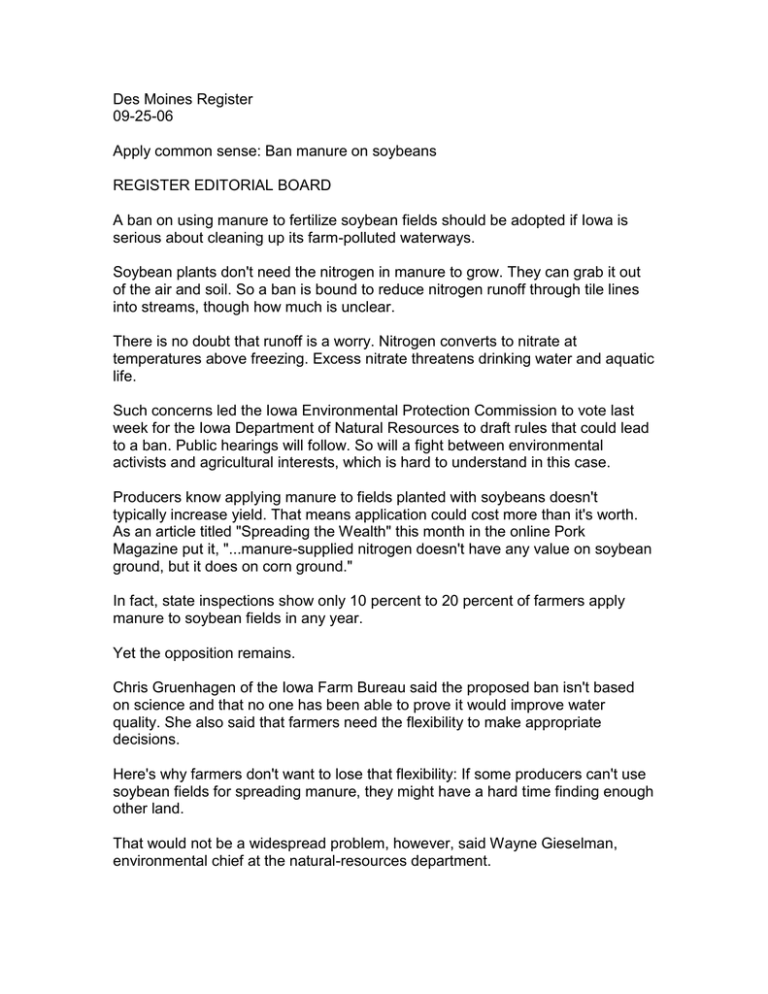
Des Moines Register 09-25-06 Apply common sense: Ban manure on soybeans REGISTER EDITORIAL BOARD A ban on using manure to fertilize soybean fields should be adopted if Iowa is serious about cleaning up its farm-polluted waterways. Soybean plants don't need the nitrogen in manure to grow. They can grab it out of the air and soil. So a ban is bound to reduce nitrogen runoff through tile lines into streams, though how much is unclear. There is no doubt that runoff is a worry. Nitrogen converts to nitrate at temperatures above freezing. Excess nitrate threatens drinking water and aquatic life. Such concerns led the Iowa Environmental Protection Commission to vote last week for the Iowa Department of Natural Resources to draft rules that could lead to a ban. Public hearings will follow. So will a fight between environmental activists and agricultural interests, which is hard to understand in this case. Producers know applying manure to fields planted with soybeans doesn't typically increase yield. That means application could cost more than it's worth. As an article titled "Spreading the Wealth" this month in the online Pork Magazine put it, "...manure-supplied nitrogen doesn't have any value on soybean ground, but it does on corn ground." In fact, state inspections show only 10 percent to 20 percent of farmers apply manure to soybean fields in any year. Yet the opposition remains. Chris Gruenhagen of the Iowa Farm Bureau said the proposed ban isn't based on science and that no one has been able to prove it would improve water quality. She also said that farmers need the flexibility to make appropriate decisions. Here's why farmers don't want to lose that flexibility: If some producers can't use soybean fields for spreading manure, they might have a hard time finding enough other land. That would not be a widespread problem, however, said Wayne Gieselman, environmental chief at the natural-resources department. There is another option, as proposed by John Sawyer, Iowa State University Extension soil-fertility specialist and associate professor in the agronomy department. Lower the upper limit on how much manure can be applied to soybean fields, he recommends. That would allow time for more research while minimizing the potential for nitrate to reach waterways. But some nitrate still would, Sawyer acknowledged. A ban on applying manure to soybean fields won't by itself solve Iowa's waterpollution problem. It won't even come close. But in combination with other preventive measures, it should help. Gieselman said research does not provide definitive proof that a ban would reduce water pollution, "but common sense certainly does." When it comes to safeguarding the outdoors, it's time Iowa erred on the side of common sense rather than what is convenient for farmers.
